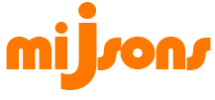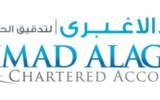The following categories of supplies that will be exempt from VAT are:
- The supply of certain financial services
- Sale of bare land
- Lease or sale of residential property
- Local transport
Our associate taxation experts can serve all your business VAT needs including VAT planning and implementation, registration and return filing as per Federal Tax Authorities (FTA) requirements.
The following categories of supplies that will be exempt from VAT are:
UAE nationals who are not registered for VAT can still claim VAT under certain circumstances. For instance, the government will be introducing a scheme allowing UAE nationals to reclaim VAT related to building new residences for themselves and their families. They can claim VAT for contractors’ services, building materials, and similar expenses.
Output VAT is the value added tax that you calculate and charge on your own sales of goods and services if you are registered for VAT. Output VAT must be charged on sales both to other businesses and to ordinary consumers. Input VAT is the value added tax added to the price you pay for eligible goods or services. If you are registered for VAT, you can deduct the amount of VAT paid from your settlement with the tax authorities.
VAT registered businesses charge and add VAT to the value of goods and services they supply. They can also reclaim VAT incurred on goods and services. Please refer to the illustration for an easy-to-understand example.
| Sales | Calculation | VAT | Total | |
|---|---|---|---|---|
| Coffee Beans Manufacturer | 10.50 AED | 0.50 AED | 0 | 0.50 AED |
| Beans Distributor | 15.00 AED | 0.75 AED | 0.5 AED | 0.25 AED |
| Coffee Shop | 20.00 AED | 1.00 AED | 0.75 AED | 0.25 AED |
| Total VAT paid by end consumer* | 1.00 AED |
*VAT is collected through the supply chain, and the end consumer pays and bears the VAT cost.
For imports, VAT is charged at the first point of entry into the consumer’s country or state (where customs duty may also apply).
Businesses should keep track of their sales purchase and expenses including the tax paid on the same. The tax payable by for a particular taxpayer is equal to tax collected on output (sales) – tax paid on input (purchases).
Let’s look at an example of how to calculate output and input VAT.
Suppose you own a coffee shop and spend 100,000 AED towards obtaining raw materials. The input tax rate is 5%, so the input tax you pay is 5% of 100,000 AED = 5,000 AED.
Now after selling coffee using the purchased raw materials, you make sales of 200,000 AED. Supposing 5% is the output tax, the output tax you pay is 10,000 AED.
So, final (net) VAT payable by you will be 10,000 AED – 5,000 AED = 5,000 AED.
In the VAT settlement, you deduct input VAT from output VAT. The resulting amount must be reported to your regional tax office. As you can see, you only pay tax to the state on the value your enterprise has added to the goods. (If your purchases exceed your sales in any one period, the difference will be negative, and the difference will be refunded).
Not necessarily. VAT and customs duty are two separate and independent levies. Even if customs duty is exempted on certain goods, imports can be subjected to VAT.
Yes, customs duties will be applicable under VAT. VAT shall be levied on the value of goods including the value of customs duty.
Zero-rated supplies include:
Additionally, each member state can zero rate or VAT-exempt:
VAT will not be deductible for non-taxable supplies. Customs duty paid at the time of import cannot be claimed for payment of VAT. Furthermore, input tax cannot be deducted if it is incurred for certain expenses, such as entertainment expenses.
For instance, if Mr. Ali, manager of SR Steel in Dubai, takes his team out for dinner, he cannot claim input tax credit for this expense.
Businesses can claim VAT under the following circumstances:
The VAT treatment of real estate will depend on whether it is a commercial or residential property.
Supplies (including sales or leases) of commercial properties will be taxable at the Standard VAT rate (i.e., 5%). On the other hand, supplies of residential properties will be exempt from VAT.
To ensure that real estate developers can recover VAT on the construction of residential properties, the first supply of residential properties within three years after their completion will be zero-rated.
The sale of bare or undeveloped land will be tax-exempt.
Businesses that satisfy certain requirements provided by the legislation (such as being under the same ownership and located within the same GCC country) will be able to register as a VAT group.
For some businesses, VAT grouping will be a useful tool to simplify accounting for VAT. By registering under the Group VAT scheme, businesses will get a single VAT number and can file a single return. A VAT group allows people and entities that are closely linked financially, economically and organizationally to operate as a single VAT person.
Value Added Tax (or VAT) is an indirect tax applied on the consumption of most goods and services. It is also referred to as a type of general consumption tax. It is imposed on a product at each stage of production before the final sale.
At each stage in the supply chain, businesses collect VAT on behalf of the government. Because it is added to the customer’s purchase price, ultimately it is the end consumer who pays VAT.
If goods and services are purchased from abroad, VAT is applicable. Most of the goods and services consumed in the UAE are imported; most come from Europe and Asia, while a few come from other GCC countries. To make it easier to understand, let’s see a few examples:
Case 1: If the business owner in the State is a registered person with the Federal Tax Authority for VAT purposes, VAT would be due on that import using a reverse charge mechanism.
Example: Aamir is a perfume dealer in UAE and is a VAT registered business owner. He imports perfume from France for sale in the UAE. He will owe VAT under the reverse charge mechanism, in which Aamir pays the tax directly to the government, and he can claim Input Tax Credit for this import.
Case 2: If the business owner in the State is a non-registered person for VAT, then VAT would be paid on goods being imported from outside the GCC. Such VAT will typically be paid before the goods are released to the person.
Example: Abdul is a non-registered business owner under VAT in the UAE. He imports goods from places outside the GCC. In this scenario, VAT is due to the UAE government and has to be paid before the goods are released to Abdul.
Case 3: If goods are transhipped via UAE to other GCC countries, import VAT is applicable. The Input Tax Credit cannot be claimed in UAE, but can be claimed in the final destination member state.
Example: Hamid deals in cutlery, and he tranships goods via the UAE to other GCC countries. In this case, import VAT is applicable. Although Hamid has to pay VAT in the UAE, the input tax credit cannot be claimed there. He can only claim it in the destination state.
Case 4: If Goods are previously imported to UAE and then exported to other GCC countries, import VAT is applicable. The input credit recovered via reverse charge has to be paid back to the UAE tax authority.
Example: Kadar owns an electronics business in the UAE and Kuwait. He previously imported 100 television sets to the UAE, and then he exported 40 of them to Kuwait (which is also a GCC country). In this case, the input tax credit which Kadar received on the 40 television sets has to be paid back to the UAE tax authority.
Registered businesses whose input VAT (tax applied on the purchase of goods or services) is more than their output VAT (tax applied on the sale of goods or services) should indicate on their tax returns that they are eligible to receive VAT refunds.
VAT can be claimed under these scenarios:
| Input tax paid on expenses related to taxable supply | Fully recoverable by the registered VAT person |
| Input tax paid on expenses related to non-taxable/exempt supply | May not be recoverable by the registered VAT person |
| Input tax paid on expenses related to both taxable and non-taxable/exempt supply | Recoverable on a proportionate basis by the registered VAT person. The registered person needs to apportion their input tax between the taxable and non-taxable/exempt supplies. Businesses will be expected to use input tax (ratio of recoverable to total) as a basis for apportionment. Other methods may be used if they are fair and agreed upon by the Federal Tax Authority (FTA). |
Export of goods and services outside the GCC and international transportation are zero rated. They must be reported in tax returns, but no VAT will apply.
UAE taxpayers should file VAT returns with the Federal Tax Authority (FTA) on a quarterly basis. Returns must be filed according to the procedures specified in the VAT legislation, within 28 days from the end of the tax period. Taxpayers can file their returns online using e-services.
For instance, if Ali has VAT returns for the October to December 2017 quarter, he has to file them before 28th of January, 2018.
The short answer is yes. The travel and tourism industry is an important part of the UAE’s national economy.
Not all parts of the industry will be subject to the same VAT rates, though. The travel and tourism sector can be broken down into several components, such as luxury, medical, education, meetings, exhibitions, healthcare, education, events and other special interest groups. It is expected that healthcare and education will be zero-rated supplies in the UAE. Meetings, conferences, events, and trade expos, which account for a significant portion the revenue-generating drive of the tourism sector, will be taxable.
Currently, the UAE is doing a feasibility study of a Tourist Refund Scheme where visitors and tourists will be able to claim a refund on VAT paid on certain goods and services purchased in the UAE.
Each person’s cost of living is affected by their lifestyle, so the impact of VAT will vary between individuals. There will probably be a slight increase in overall cost of living, but a person who spends mostly on exempt and zero-rated things will not see much increase.
The proposed standard rate of VAT in the UAE will be up to 5%. Certain supplies of goods and services may be either exempt (meaning VAT will not be applicable at all), or zero-rated (meaning 0% VAT will be applied to goods and services). The standard rate will be applied to all goods and services that do not fall under an exempt or zero-rated goods and services category.
The Federal Tax Authority has decided to introduce VAT in the UAE by 01 January 2018.
Excise Tax is normally waved off when excisable goods are located in a tax warehouse or transported between tax warehouses. The Excise Tax shall be imposed upon release of the excisable goods for consumption from the tax warehouse.
There are a limited number of cases where businesses can get refunds if they are not registered for excise tax. Those are:
A refund request form will be available on the FTA website that can be used to request refunds.
Excise tax is paid only once in the supply chain. Hence, all businesses that deal in excisable goods cannot obtain a refund of the excise tax paid on those goods, unlike VAT.
Still there are some cases where a refund of excise tax will be available:
In these scenarios, a business registered for excise tax can get the refund of the excise tax paid. The refund will be granted by allowing a deduction of the refundable amount from the tax due in the next excise tax return period.
A designated zone is a warehouse, zone or area inside the UAE where the Excise tax will not be applicable. It is also known as an excise warehouse.
Goods held in these designated zones and the transfer between them will not be subject to Excise tax. The tax will be only imposed when these goods leave the designated zone and enter free circulation in the UAE. The FTA takes the responsibility to register and approve an area to be a designated zone. FTA will also appoint warehouse keepers for particular zones, and thus they will be in-charge over that zone.
If person or business that deals with excisable goods has stocked excisable goods and cannot prove that the Excise tax has been already paid for the same, then they are known as a stockpiler.
Some transactions that are typically exempt from Excise Tax are, for example, when supplies are sent to diplomatic missions or when a travellers’ allowance is issued.
Also, business which does not regularly import excisable goods may apply to the FTA for an exemption from registration and thus will only have to pay the Excise Tax when they import goods into the UAE.
There are two methods of charging Excise Tax on goods, Specific or Ad valorem basis.
Specific excise taxes are charged by quantity regardless of price, i.e., per unit, pack, or kilogram.
Ad valorem excise taxes are charged as a percentage of the value of the product: Ad valorem tax = Number of units or other measurement x Selling price at any specific value per unit x Ad valorem tax rate.
The levy of Excise Tax in the GCC will be on the ad valorem basis. For example, if 100 kg of taxable products are sold at AED 100/kg and if the tax rate is 50%, the excise tax will be AED 5,000 [ 100kgX AED 100/ X 50%].
The business should electronically file Excise Tax returns on a monthly basis and, within 15 days of this filing, the tax due should be electronically paid to the UAE Federal Tax Authority (FTA).
Businesses those who are required to pay excise tax, have to:
Businesses that are involved in the following activities will be required to register for Excise tax:
The Excise tax is due in these following scenarios:
As the excise tax is not a transaction-based tax, goods do not have to be sold in order for the tax to be due.
Excise Tax doesn’t have any registration threshold. Hence, any business that is engaged in importing, exporting, manufacturing, trading, storing or transporting of excisable goods must register for the excise tax.
Registrations for Excise tax will open 17 September 2017. Manufacturers and importers of excisable goods will have to register for Excise tax purposes through an online system provided by the Federal Tax Authority (FTA).
The following goods will be excisable in the UAE, and their rates are :
The Federal Tax Authority(FTA) has decided to introduce excise tax in the UAE from 01 October, 2017.
he Excise Tax is different and separate from the Value Added Tax (VAT).
VAT is applied at each level in the supply chain whereas the Excise tax is applied only once either at the initial stage or at the consumption level.
Also, the introduction of the Excise Tax will meet two fundamental Government policy objectives, to raise Government revenues and also to discourage the consumption of goods considered harmful to health or the environment. This is an important policy reform in the UAE aimed at promoting economic growth and fiscal stability.
An excise tax is an indirect tax charged on the sale of a particular commodity. The government has announced the implementation of excise tax on selective items such as tobacco, energy drinks and fizzy drinks. The rate of excise tax will be 100% on tobacco products and energy drinks and 50% on carbonated drinks.







